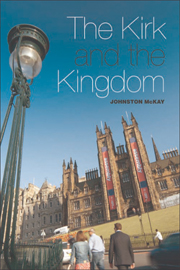Introduction
Published online by Cambridge University Press: 05 August 2013
Summary
In a famous and frequently quoted altercation between Andrew Melville and King James VI, Melville said:
And thairfor, Sir, as divers tymes before, sa now again, I mon tell yow, thair is twa Kings and twa Kingdoms in Scotland. Thair is Chryst Jesus the King and his kingdome the Kirk, whase subject King James the saxt is, and of whase kingdome nocht a king, nor a lord, nor a heid, bot a member! And they whome Christ hes callit and commandit to watch over his Kirk, and governe his spiritual kingdome, hes sufficient powar of him, and authorities sa to do, bathe togidder and severalie; the quhilk na Christian King nor Prince sould control and discharge, but fortify and assist, utherwayes nocht faithfull subjects nor members of Christ.
In this Melville was following John Calvin, who had taught that the petition in the Lord's Prayer ‘Thy Kingdom come’ should not be taken to imply that it did not exist already, because God has reigned from the beginning of time. The Kingdom exists already in the company of the elect.
The argument of this study is that until the second half of the nineteenth century in Scotland, the Kingdom and the Kirk were regarded as identical: not totally, because there was always an understanding of the Kingdom that lay in the future, realised in God's own time. However, that the Kingdom and the Kirk were in some identical relationship such as Melville described to James VI was not in doubt.
- Type
- Chapter
- Information
- The Kirk and the KingdomA Century of Tension in Scottish Social Theology 1830-1929, pp. 1 - 4Publisher: Edinburgh University PressPrint publication year: 2011



